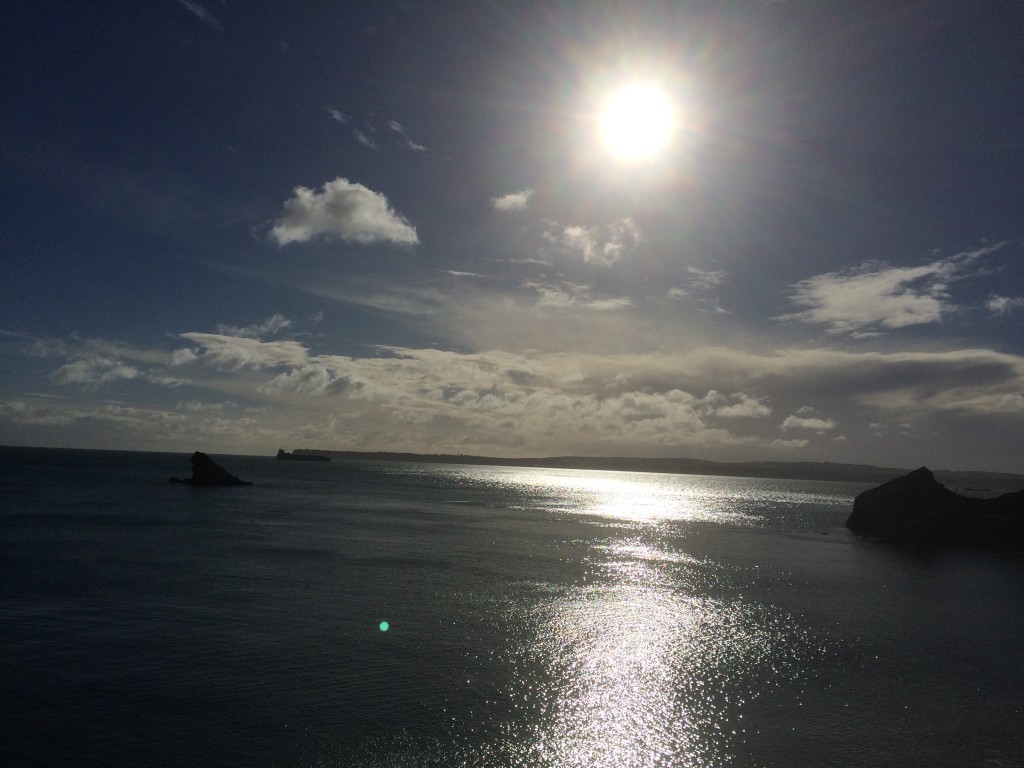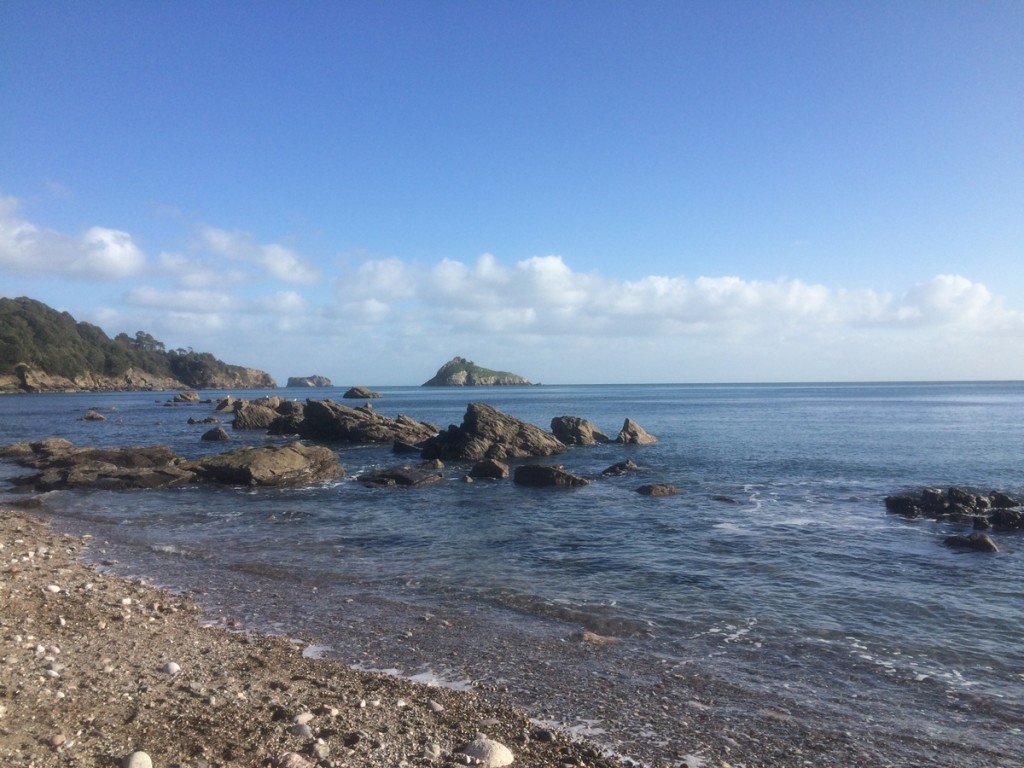
We read in the Gospel of Matthew, that as Jesus walked beside the Sea of Galilee, he saw two brothers, Simon and Andrew, casting a net into the lake, for they were fishermen. “Come, follow me,” Jesus said, “and I will send you out to fish for people.” At once they left their nets and followed him.
On the same walk, Jesus called two other brothers, James and John, who leave their boat, and their father, and follow him.
God is always speaking
His transforming words into our lives
As we still our hearts and listen.
He is, by his very nature, a God
Who speaks. At the start of his great Gospel,
The Apostle John calls Jesus the Word
Who was God, and became flesh
And lived among us.
And this speaking, communicating, yearning God
Calls each of us to the work he wants us to do in the world.
We are sometimes called at a particular point of time,
Through specific words or images,
Or else, gradually, through an inner conviction
That this is the task we are to embark on
With all our strength, for the rest of our lives.
The call we hear, or sense, is utterly serious.
And if we say “Yes!,” the moment of response
Is among the greatest and most important moments of our lives.
For it is a transforming call.
It changes the whole direction of our lives.
From the day we hear God’s call,
We must begin to restructure our lives
In accordance with this necessity.
What we read, the friendships we invest in,
Our social activities, hobbies, leisure,
Our whole lives…are hitherto
To be shaped in accordance with our calling.
The greatest, kindest person in the whole world,
Jesus Christ, has called you to something you
Are uniquely equipped to do, you
With your strengths and your weaknesses,
You have been called, commissioned
To a task in which you will flourish and find joy.
But not just you.
Jesus said he would give his flesh, sacrifice
His life for the life of the world.
And while what we are called to will make us fully,
Blazingly alive–mentally, emotionally, and spiritually,
What God calls us to do will also contribute
To the life and the flourishing of the world.
* * *
God wastes nothing.
Your call will use the gifts, experiences, and strengths
Formed in you by the circumstances of your life.
Peter, Andrew, James and John were fisherman
Who sometimes worked hard all night and caught nothing,
Who could row three and a half miles out of shore,
Who were caught in perilous storms, in which waves crashed into the boat
And they almost sank.
This hardiness gave them the tough, resilient character of men
Who could not only catch fish to keep themselves alive
But could also persuade humans into a richer,
Deeper, more peaceful and eternal life.
No longer fishermen but fishers of men, punning Jesus said.
The call of God, if obeyed, always leads to a bigger,
Better and more challenging place.
Your call will stretch you, mould you and transform you.
To reject, or to ignore the call is to reject growth.
The call gives us a new identity.
The fisherman became leaders,
Writers of the New Testament, poetic and prophetic.
And sometimes, at the point of the call,
God supernaturally puts into us spiritual gifts, strengths,
And abilities called an anointing (Oh, precious thing!)
Which makes difficult things easier.
If you yearn for that, then pray for it.
* * *
The call will involve sacrifice.
We cannot simply squeeze a new mission into our crowded lives.
If you hear God call you to write, let’s say,
You must immediately ask yourself: “What
Will I stop doing to help this new thing happen?”
Less time reading the news, or on social media?
Releasing outgrown friendships which drag you down?
Eating more simply, more raw foods perhaps?
Buying as few inessential things as possible?
God’s call is benevolent, beneficent, aimed at our flourishing.
And as we begin to obey it, with increasing faithfulness,
Our whole life changes.
It becomes more serious, more purpose-driven.
And purpose is one of the greatest things we humans can have,
(Along with faith, hope and love).
When we have purpose, our eyes are bright with it.
* * *
Having heard a call, you set out in obedience
On a very long journey,
Which will last the rest of your life.
There’s almost always a long gap between hearing a call,
And seeing the fruits of your work.
For God’s call to you is not just for the life and flourishing of the world,
But, also, for your own growth and flourishing.
While you are refining your skills to fulfil your call
God is shaping and refining you–
Your persistence, your ability to follow through,
To get from A to Z, meet deadlines, get organised,
To ask him for guidance, and learn the sound of his voice.
You grow up, you mature, you toughen,
You develop character as you develop your gifts.
The precise call may be revealed progressively.
You can only steer a moving car.
If you hear God’s call to write, say,
Begin today, with the words and ideas which come.
Polish and burnish your craft while awaiting
More precise marching orders,
Which may keep coming over decades.
* * *
Now, here’s the hard part.
Being called, as many are,
Does not guarantee blazing success in the world’s eyes,
Or by human metrics. God decides our platform,
Whether our work will reach dozens, hundreds, thousands, or millions.
In the Parable of the Talents,
God gives some one talent, some two and some five.
The ones with two and five talents each work as hard as they can
And each double their capital.
But still, one ends up with four talents, and the other with ten.
That’s life. If it seems unfair, it’s because we are characters
In a play God has written. He gives us our roles,
And it’s our job to play them as beautifully as we can.
Some writers, for instance, will always have a small audience.
Fact of life.
If that is you, write as truly and beautifully as you can,
With gratitude for your platform, large or small.
But hey, if having many readers or listeners matters to you,
(And it does matter to me!)
Ask God to grant you success,
And trust in his grace to work well, whether
In Milton’s phrase, your success will eventually be
“Less or more, or soon or slow, or mean or high.”
* * *
And what if you have heard a call
But have not been steadily faithful in following it?
And, here, I sadly put up my hand.
Me too.
I have not been single-minded.
I have been distracted.
If you’ve half-heartedly focused on your call,
And wasted time in trivial pursuits,
Sprint after Jesus as he continues walking by the Sea of Galilee.
Repent and promise renewed faithfulness to your call,
Renewed seriousness,
For our life is a short, serious and holy experience.
Recommit, and follow your call as intensely
As you wish you had done at first.
* * *
And what if you haven’t heard a specific call yet?
After all, Peter, Andrew, James and John,
Young working men, earning their living
Had not heard a call until that brilliant, costly, priceless day
When Jesus called them.
If you haven’t heard a specific call,
Then do the next right thing while you await direction.
Never jump into a ministry or your life work for God
Before you have heard God’s crystal-clear directions.
And while he prepares us, God also speaks through our lives.
What happens in the doctor’s office?
Do you leave resolving to exercise more,
To cut back on sugar, caffeine, white carbs? To meditate?
Start small in forming the good habits you’ll need, but start.
Is your house ready to invite friends over
Without a cleaning-up operation that’s like
Hiding the evidence of a crime?
Create time by decluttering everything inessential from your home,
Anything which slows you down as you run your race.
Do you tell yourself you’d love to wake with the sun?
Then recalibrate with night-time go-to-bed alarms and earlier nights.
All this is preparation.
* * *
So, dear Lord,
Help us to be single-minded and laser-focused,
On being faithful to what you have called us to do.
We love you; increase our love.
We want to always see you before us, Jesus.
Increase our faith.
Amen.
This meditation is inspired by Matthew 4: 18-22
If you haven’t yet discerned your purpose in life, I’d recommend Rick Warren’s The Purpose-Driven Life (UK), or on Amazon.com
If you’d like to read my previous recorded meditations,
5 Change Your Life by Changing Your Thoughts
4 Do not be Afraid–But be as Wise as a Serpent
3 Our Failures are the Cracks Through Which God’s Power Enters our Lives
2 The World is full of the Glory of God
1 Mindfulness is Remembering the Presence of Christ with us.
Please subscribe at Apple podcasts, Spotify, Amazon music, Audible, or wherever you get your podcasts. Thanks!!
And, of course, I would love you to read my memoir, fruit of much “blood, sweat, toil and tears.”
Rosaries, Reading, Secrets: A Catholic Childhood in India in the UK, and in the US, here, well, and widely available, online, worldwide 🙂














 Irene, my 15 year old, has decided to become a master juggler. (I blame
Irene, my 15 year old, has decided to become a master juggler. (I blame 


 I’ve adopted Martin Seligman’s recommended habit of recording 3 good things about my day. Apparently, people who do this report being 25% happier within 3 weeks. I think it is true. I’ve often needed to scan my day carefully to see what was golden about it rather than nondescript. After a while looking for gold becomes a habit.
I’ve adopted Martin Seligman’s recommended habit of recording 3 good things about my day. Apparently, people who do this report being 25% happier within 3 weeks. I think it is true. I’ve often needed to scan my day carefully to see what was golden about it rather than nondescript. After a while looking for gold becomes a habit.

